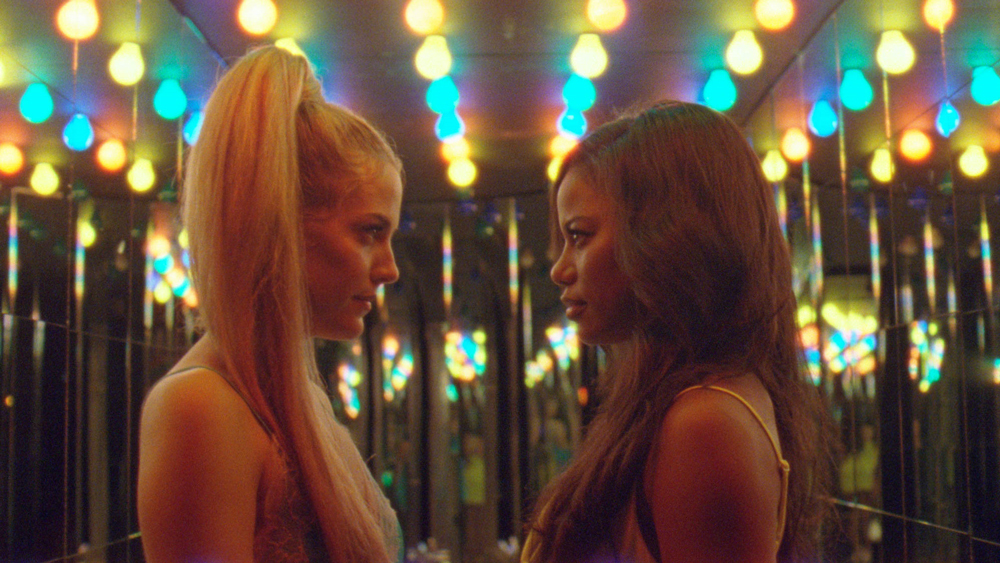Zola: All That Twitters, Newly Told

Almost Famous may have immortalized the trope of passengers giddily belting out a classic pop song, but Zola, the indecently entertaining new film from Janicza Bravo, revives the conceit and reinvests it with a distinctly modern sensibility. In an early scene that finds four strivers cruising south from Detroit to Tampa, a young man cues up Migos’ “Hannah Montana” and starts enthusiastically bobbing along to the beat. At first he seems foolish (in no small part because he’s played by Nicholas Braun, aka Cousin Greg from Succession), but before long his gusto infects his fellow travelers, who join him in a rambunctious display of lip-synching and tongue-wagging. The mood is jubilant but also performative, the gesticulators constantly posing for pics and racking up the likes on Instagram. It’s a celebration that’s simultaneously authentic and synthetic.
This preoccupation with digital gratification—a mingling of heedless joy and self-conscious artistry—doesn’t belong exclusively to the characters; it’s embedded in the movie’s very DNA. Zola was born from Twitter, specifically a viral 148-tweet thread from A’Ziah “Zola” King, who in October 2015 tapped out on her phone an emoji-laced saga of vice, mayhem, and betrayal. (The reporter David Kushner quickly turned it into an article for Rolling Stone.) A sprawling collection of 140-character missives may seem like bare bones for a feature film, but one of the lessons of the technological age is that art can come from anywhere. And Zola, as brought to the screen by Bravo and co-writer Jeremy O. Harris, is a proudly contemporary picture that also draws from classic cinematic influences. As the saying goes, all you need to make a movie is a girl, a gun, and a smartphone to orchestrate your illicit prostitution scheme. Read More
